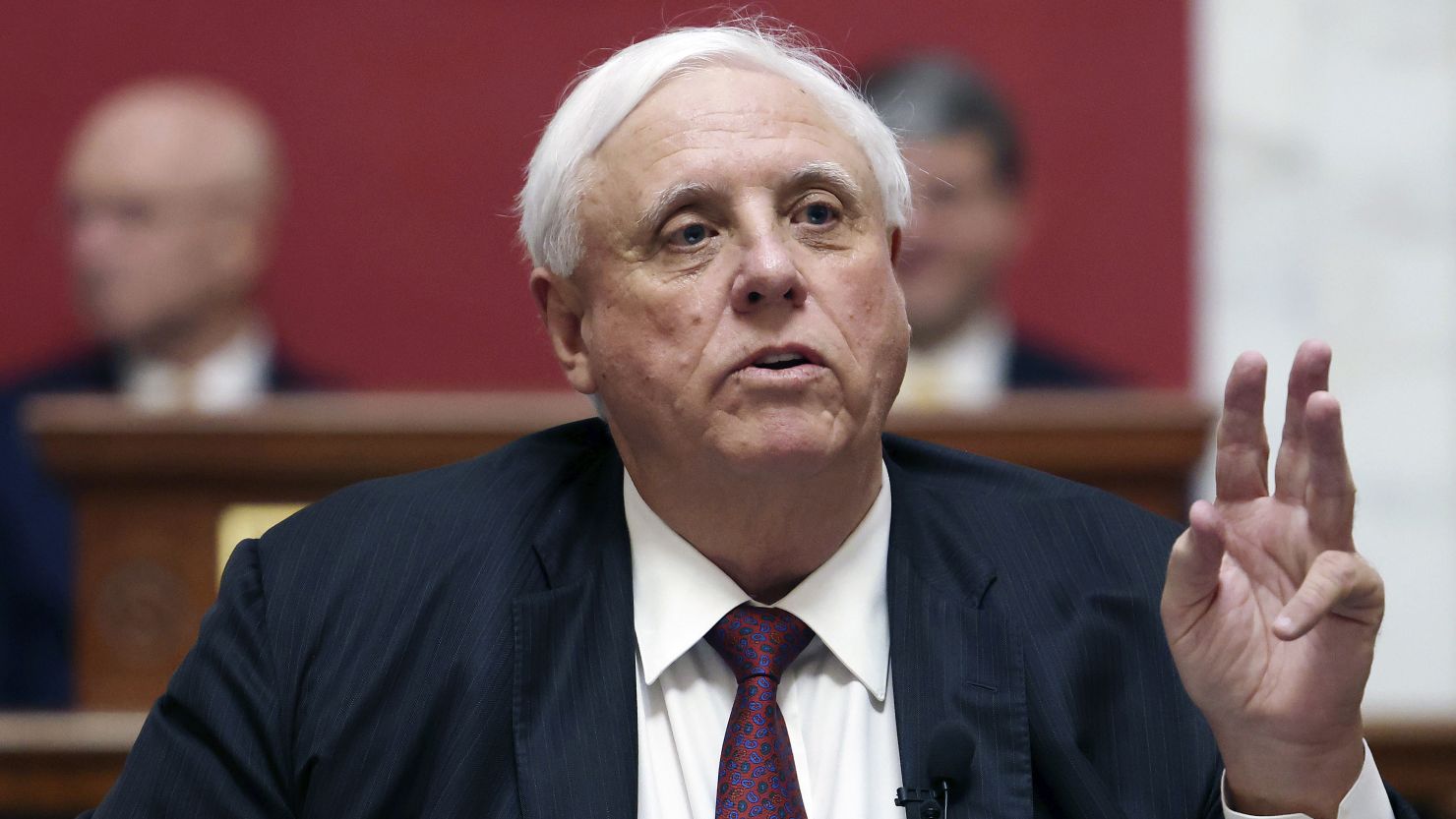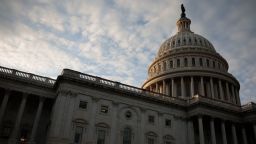Republican Gov. Jim Justice of West Virginia announced his Senate candidacy on Thursday, setting up a potential challenge to Democratic Sen. Joe Manchin, among the most vulnerable incumbents in 2024.
“I am officially announcing my candidacy for the United States Senate,” Justice told a roomful of supporters in White Sulphur Springs. “And I absolutely will promise you to God above that I will do the job, and I will do the job that will make you proud.”
The term-limited governor was joined by Sens. Shelley Moore Capito of West Virginia and Lindsey Graham of South Carolina, who praised Justice during introductory remarks.
“We need help in Washington. We need a winner. We need somebody that can win in a general election. A conservative who can move the ball forward in Washington, DC,” Graham said. He added that “we’ve made mistakes in 2022. We didn’t nominate maybe the right person for the state in which they were running – I promise you, Jim Justice is the right person for West Virginia.”
CNN has reported that GOP leaders are expected to close ranks behind Justice in the primary, which also features Rep. Alex Mooney, who has the backing of the influential conservative group Club for Growth.
“Jim Justice is a proven winner whose record of creating jobs, cutting taxes, and fighting for conservative values has made him one of the most popular governors in the country,” National Republican Senatorial Committee Chair Steve Daines said in a statement Thursday.
Justice avoided mentioning Mooney or Manchin in his remarks, instead focusing his criticism on the Biden administration.
Manchin, who has not yet said whether he is running for a third full term, responded to Justice’s announcement by saying he was “laser focused on doing the job West Virginians elected me to do – lowering healthcare costs, protecting Social Security and Medicare, shoring up American energy security and getting our fiscal house in order.”
“But make no mistake, I will win any race I enter,” the Democrat said in a statement.
Manchin later told CNN that Justice’s move “doesn’t change anything at all” but that he would take the challenge seriously.
“Every opponent I’ve had is strong and threatening or they wouldn’t jump in,” he said. “Anybody that basically discounts their opponent could have a problem.”
Manchin would face a difficult reelection race next year in a heavily Republican state, which backed President Donald Trump in 2020 by nearly 40 points. West Virginia topped CNN’s most recent list of the Senate seats most likely to flip next year.
Justice was first elected governor in 2016, as a Democrat. He switched parties the following year, announcing his move at a rally alongside Trump. It wasn’t the first time he had changed his political affiliation – he had previously been an independent and a Republican until 2015, when he ran for governor as a Democrat.
Justice easily won a second term in 2020. He has recently focused on conservative issues. Last year, he signed into law a measure that prohibits nearly all abortions in the state, except in certain medical situations or in cases of rape or incest. Last month, he signed a bill that will allow West Virginians who have a concealed carry permit to carry certain concealed weapons onto college and university campuses.
Justice highlighted a few policy priorities on Thursday, touching on abortion, gun rights and the growing conservative focus on education and parental involvement. “We have absolutely crafted laws against abortion in this state that are the toughest of the toughest,” he said.
“I have never seen a gun kill anybody. Ever,” Justice said when discussing Second Amendment rights. “But there’s a heck of a lot of people that kill people.”
Justice entered politics after a long career in his family’s coal and agriculture businesses. He joined his family’s Bluestone Industries in 1976 and officially took over upon his father’s death in 1993. He was the president and CEO of more than 100 companies before 2016, according to the governor’s website.
Manchin, also a former governor, has served in the Senate since 2010. He has spent much of the past two years at the center of the action in the narrowly divided Senate, where his vote has been pivotal. He’s blocked some of President Joe Biden’s more ambitious agenda items, such as the Build Back Better plan, and stood firm against Democratic calls to gut the filibuster in order to pass voting rights legislation and other bills. But his support has been critical to passing other key parts of the Biden agenda, including a $1.9 trillion Covid-19 relief plan in 2021 and a sweeping $750 billion health care, tax and climate measure last year.
This story has been updated with additional reporting.






